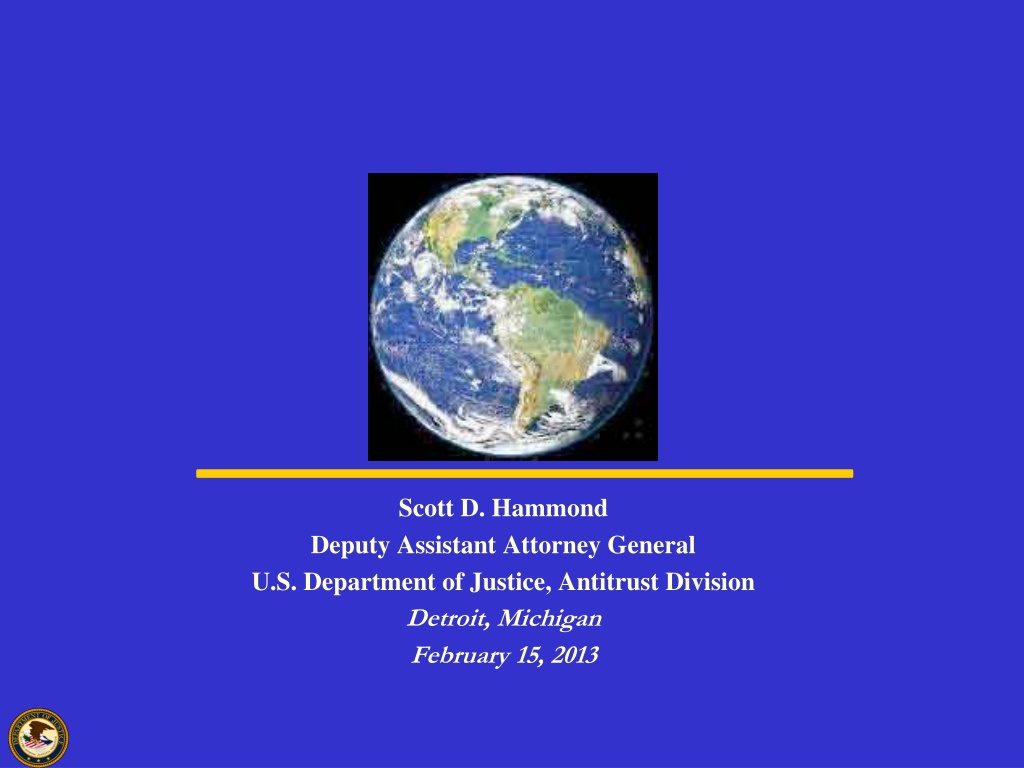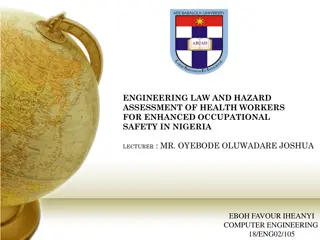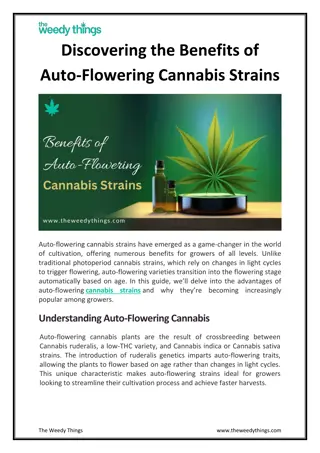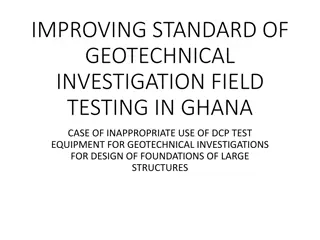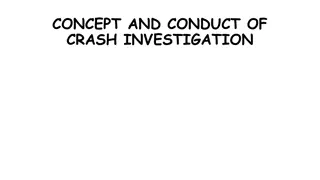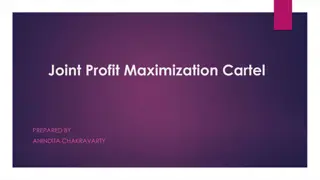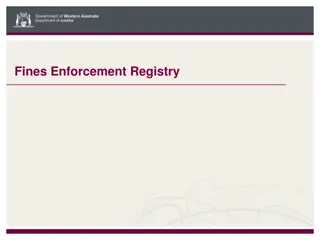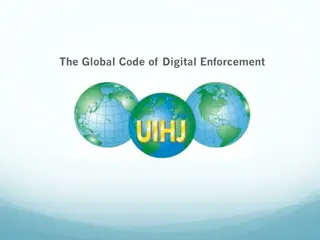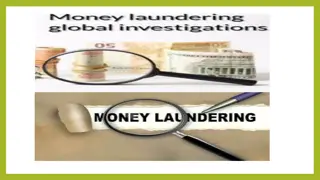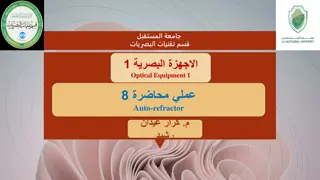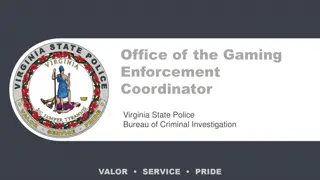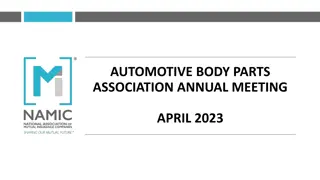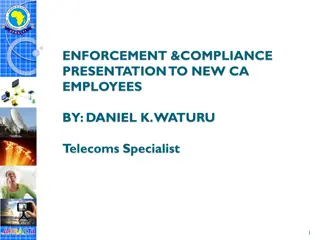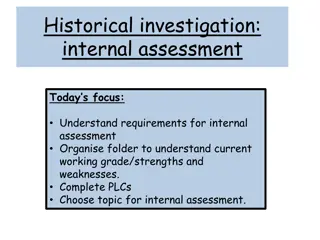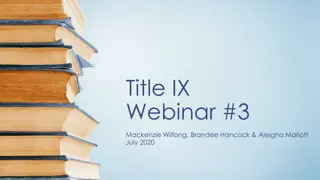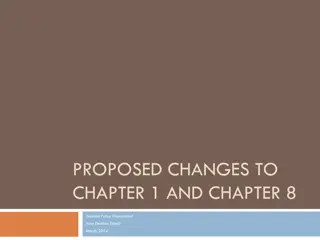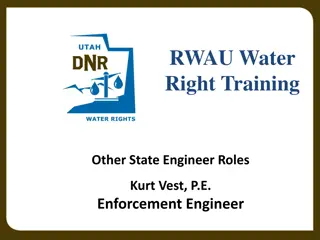Global Impact of Auto Parts Investigation and Cartel Enforcement
The Auto Parts Investigation led by Scott D. Hammond sheds light on the largest criminal antitrust probe, with fines imposed on companies, individuals pleading guilty, and coordination with global enforcers. The investigation uncovered collusion in the auto industry, including price-fixing, bid-rigging, and sales allocation among manufacturers. The road map to the investigation highlights enforcement networks and tools used to combat cartel offenses. Additionally, the ICN Member Survey reveals a global trend in anti-cartel enforcement with a focus on detecting and deterring hardcore cartels, resulting in changes in competition laws worldwide over the past decade.
Download Presentation

Please find below an Image/Link to download the presentation.
The content on the website is provided AS IS for your information and personal use only. It may not be sold, licensed, or shared on other websites without obtaining consent from the author. Download presentation by click this link. If you encounter any issues during the download, it is possible that the publisher has removed the file from their server.
E N D
Presentation Transcript
Scott D. Hammond Deputy Assistant Attorney General U.S. Department of Justice, Antitrust Division Detroit, Michigan February 15, 2013
The Auto Parts Investigation Largest criminal antitrust investigation ever: Impact on U.S. businesses and consumers Number of companies and executives involved Cooperation and coordination with enforcers abroad Prosecutions to date: l 2 individuals have pled guilty and are cooperating 10 of 12 surrendered to U.S. jurisdiction Jail sentences range from 1-2 years 9 companies have pled guilty and are cooperating $809 million in total fines imposed to date $470 million criminal fine imposed on Yazaki 2
Auto Manufacturer Issues RFQs for New Model Conspirators Meet and Allocate Sales Conspirators Fix Prices and Submit Rigged Bids Conspirators Meet and Coordinate Annually Contracts Awarded To Conspirators At Collusive Prices
Road Map to Auto Parts Investigation Global network of enforcement to deter and detect cartel offenses Raising the stakes for antitrust crimes Tools and strategies used by the Antitrust Division to detect antitrust crimes Tools and incentives provided to companies to implement effective antitrust compliance programs and to conduct thorough and effective internal investigations 4
ICN Member Survey on Trends and Developments in Anti-Cartel Enforcement Survey of 46 jurisdictions represented in ICN Cartel Working Group The world is changing heightened focus on detecting and deterring hardcore cartels including new laws, harsher sanctions, and more aggressive investigative tools Where you can find complete results: http://www.internationalcompetitionnetwork.org/ uploads/library/doc613.pdf. 5
Changes in Competition Laws What changes/developments in your competition law have impacted your cartel enforcement program over the last 10 years? 50 43 Number of Countries 45 40 35 35 35 30 23 25 19 20 15 11 11 10 7 10 6 5 0 New Violation Provisions Investigative Powers Institutional/ Procedural Obstruction Provisions Leniency Provisions Settlement Provisions Increased Statute of Adoption of Per Se Remedial Provisions Increased Penalties Limitations Standard Provisions 6
Creation of New Investigative Powers What changes/developments have taken place in your competition law over the last 10 years, with respect to the creation of new investigative powers that have advanced your cartel enforcement efforts? 45 39 40 Number of Countries 33 35 31 30 25 21 20 12 15 8 10 5 5 0 New Powers to Interrogate or Adoption of Leniency Program Changes in Leniency Program Compulsory Process for Documents/ Information Expanded Search Powers Adoption of or Changes in Wiretap Authority Obtain Statements from Leniency Program Witnesses 7
Ramped Up Enforcement in U.S. U.S. Congress raised statutory maximum penalties in June 2004 to 10 years incarceration (individuals) and $100 million fine (corporations) Full investigative arsenal: wiretap authority, search warrants, FBI investigators, border watches and Interpol Red Notices for fugitives Emphasis on individual accountability through the imposition of jail sentences for culpable executives 8
Incarceration Trend Average Prison Sentence in Months 25 20 8 1990-1999 Average 2000-2009 Average 2010-2012 Average 9
Percentage of Defendants Sentenced to Prison 71% 62% 37% 1990-1999 average 2000-2009 average 2010-2012 average 10
Total Criminal Antitrust Fines $1.1 Billion $1 Billion $701 Million $630 Million $555 Million $524 Million $473 Million $350 Million $338 Million $107 Million 2003 2004 2005 2006 2007 2008 2009 2010 2011 2012 11
Proof of Actual Deterrence U.S. DOJ has detected numerous cartels that violated competition laws around the world but chose not to extend cartel activity to U.S. market, because they feared U.S. detection and sanctions The risk of under-punishment by a jurisdiction is that its businesses and consumers will be victimized by cartels that could have been deterred 12
The Leniency Carrot The Division s Corporate Leniency Policy offers huge incentives to be the first to voluntarily disclose antitrust crimes No charges filed against company No charges filed against cooperating employees No fines and no jail Eligible for reduced civil damage exposure Confidentiality policy protecting applicant identity and information 13
The Leniency Stick Full immunity is only available to the first company to self report and meet the conditions of the program The second company and those that follow (as well as their executives) face severe sanctions 14
The Leniency Race The winner-take-all approach creates distrust and panic within the cartel and destabilizes it Individual exposure also creates a potential race between the company and its own employees 15
Type A Corporate Leniency Conditions 1. Division has no information about the activity 2. Upon discovery, took prompt and effective action to terminate 3. Candor, and continuing and complete cooperation 4. Confession a truly corporate act, not isolated to individuals 5. Where possible, restitution 6. No coercion, not the leader or the originator 16
Type B Corporate Leniency Conditions 1. First in 2. Without evidence likely to result in sustainable conviction 3.- 6. Prompt and effective termination; candor, continuing and complete cooperation; truly corporate confession; restitution 7. Leniency would not be unfair considering nature of activity, applicant s role, and timing (burden increases with time) 17
Conducting Internal Investigations The majority of antitrust investigations lead to the discovery of additional, unrelated antitrust crimes The cultivation of cartel trees How the Antitrust Division provides companies with the necessary tools and incentives to detect and report misconduct before it is too late 18
The Amnesty Plus Program Company negotiating plea agreement in current investigation of Product A obtains lower fine by disclosing existence of second, unrelated conspiracy involving Product B Company receives amnesty for Product B and receives a substantial additional reduction (the plus ) in the fine for Product A Key that interests of both company and its employees are aligned in internal investigation because both stand to benefit from self reporting 19
The Flip Side to Amnesty Plus The Division is looking for additional, unrelated crimes and employs cartel profiling techniques Use of the omnibus question in witness interviews to ferret out additional wrongdoing If we find it first, then the penalties are likely to be severe the Division s Penalty Plus program 20
Looking For More Information? For more information on the Antitrust Division s Corporate Leniency Policy please visit: http://www.justice.gov/atr/public/criminal/lenienc y.html For an Antitrust Primer on how to detect antitrust crimes please visit: http://www.justice.gov/atr/public/guidelines/2115 78.htm 21
